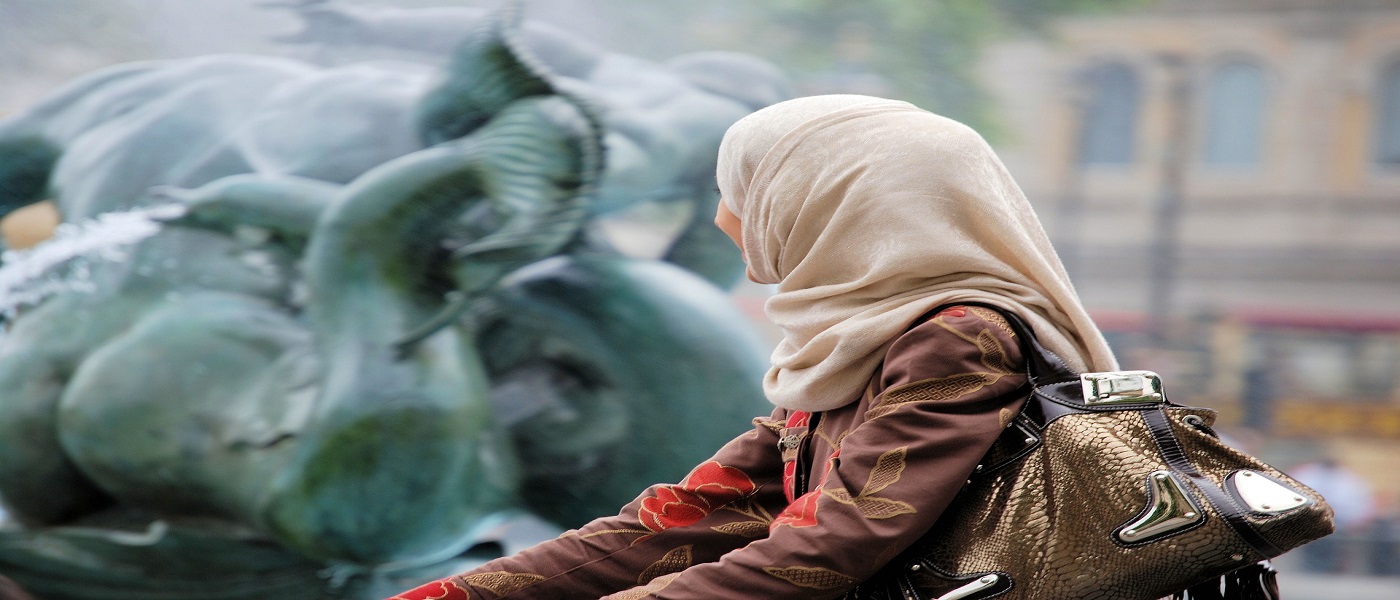
Some people who are not well acquainted with the true Islamic teachings think that Islam has not provided for all Muslims the equal social rights. And on account of the fact that Islam has made some distinctions between men and women’s rights they conclude that the same distinctions are made in their social rights.
As a result, the picture of women in Islam to them is usually the stereotype of an oppressed, inferior figure and bereft of any right.
Islam is the religion of equality and gender is not a standard for preference of one over another. In fact, Islam has not only taught the equality of all humans before God but also promoted it in the social sphere. Consequently, in the Islamic social system men and women are granted the equal rights and there is no difference between them about their gender.
But, the point is that “equality” does not mean the “similarity” of their rights, since men and women are not identical to one another in many respects [1]. Therefore, we can deduce, although through comparing their rights a kind of disparity appears at the individual level, both of them privilege the equal rights in the social scale.
The concept of women’s equal social rights is practically extended in all aspects of social life, and meanwhile, the “equality” does not reflect the meaning of the “sameness.” Instead, it means that their social rights are equated in the matters related to self-worth and individual value to those of men.

Women are given a free hand to choose the occupation they want. But they have to note that their occupations should neither be incompatible with their physical and spiritual characteristics [2] nor in conflict with their duties towards their families.
This is why Islam has absolved them from providing for the family in the first place so that they become able to take care of their household as best as possible [3]. However, they are entitled to receive a fair wage by their works either outside the house from their employers or inside the house from their husbands if they ask for it [4].
There is no restriction on women traveling alone if it is not inconsistent with the interests of their families. And regarding their social presence, it is a women’s right to be protected from men’s malicious eyes, whose obligation is casting his eyes down towards them [5].

In the Islamic social system, an equal emphasis is given to women for benefiting from social security systems and social services [6]. Also, women’s right in benefiting from Islamic legal and juridical systems is equally safeguarded.
Many stories from the early period of Islamic history deal with women who referred their disputes to the Prophet (PBUH) in the same way as men sought his judgment [7]. Moreover, not only they share the right of election and the nomination to political offices with men but also can access the highest levels of political authority due to the Islamic laws, provided that it is not inconsistent with their physical and spiritual capacities and their responsibilities towards their families [8].
This right is so much important that Prophet Muhammad (PBUH) once commanded that even slaved girls should be educated [9] and in one famous narration he considered seeking knowledge an essential task for both sexes [10].
In the light of the above facts, we can conclude that the idea of inferiority of the social status of women in Islam to men is void and baseless. However, as it was mentioned earlier, men and women’s social rights are “equal” and not “similar” due to great differences between their characteristics.
That is why the social obligations of women in Islam are narrower than those of men; as Islam has exempted them from the burden of providing maintenance for the family [11] and even some religious practices.
[1] Mutahhari, Murtadha, The Rights of Women in Islam.
[2] Amini, Ibrahim, An Introduction to the Rights and Duties of Women in Islam.
[3] Penny, Sue, Islam, p.39.
[4] Lois, Beck, Women in Iran from 1800 to the Islamic Republic, pp. 165-166.
[5] Muhammad Javad, Bahonar, Islam and Women’s Rights.
[6] Universal Islamic Declaration of Human Rights; this article is available at https://www.whyislam.org.
[7] Johnson, Andy, Religion and Men’s violence against Women, pp. 322-325.
[8]Mahmudi, Hassan, Issues in Women’s rights: A Practitioner’s Resource Book, p. 47.
[9] Nasir, Jamal, The Statue of Women Under Islamic Law and Modern Islamic Legislation, p. 15.
[10] https://www.submission.org
[11] Cornell, Vincent, Voices of Islam: Voices of life: family, home, and society, p. 85.